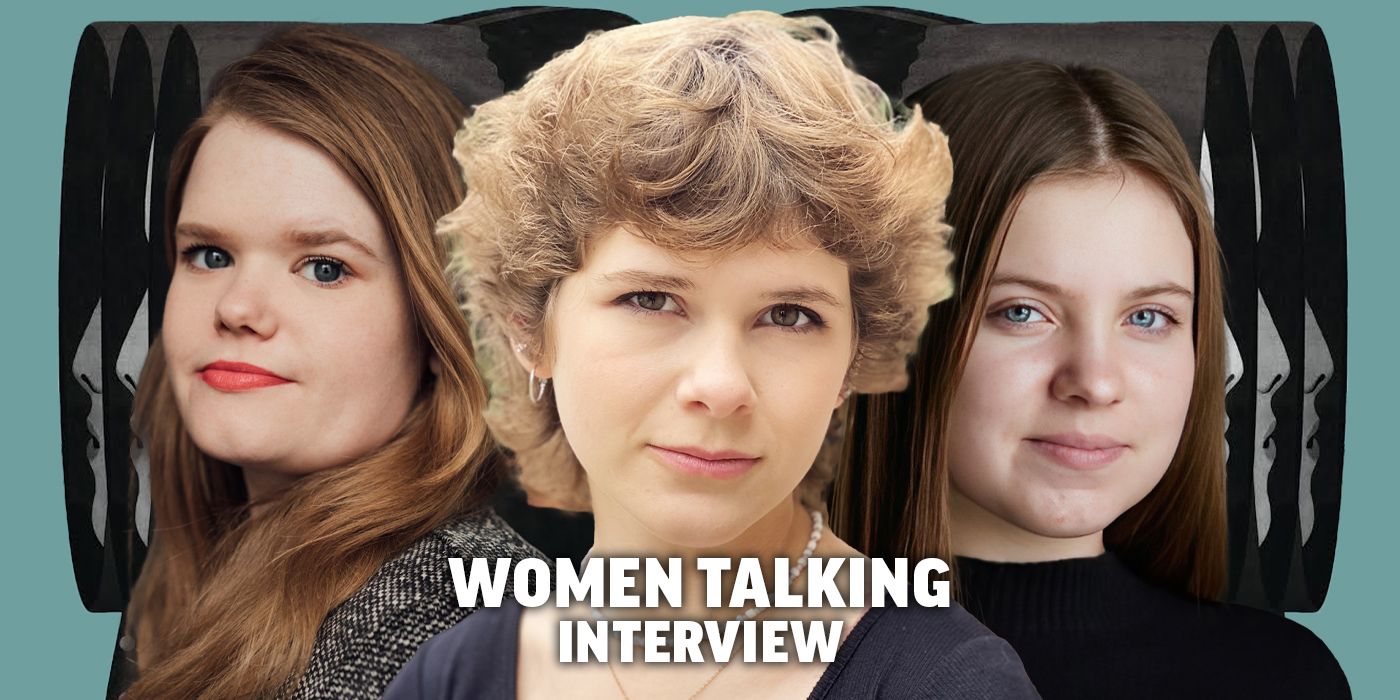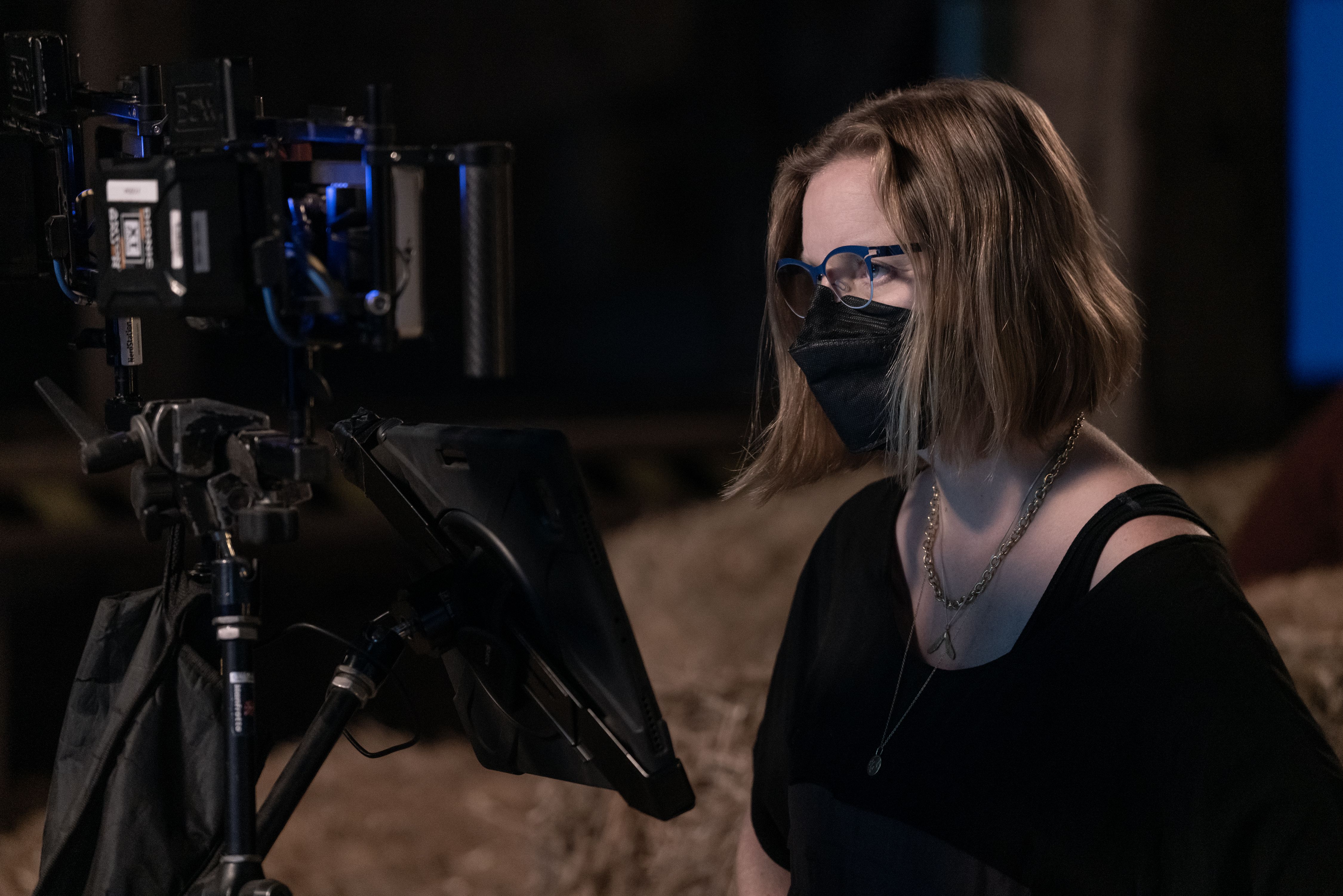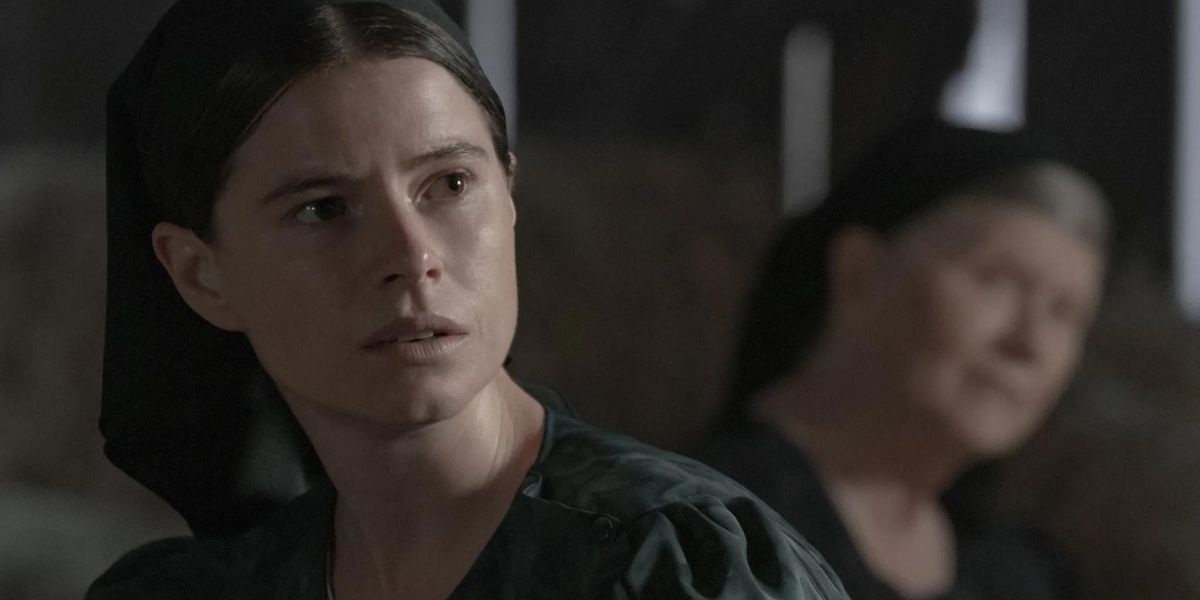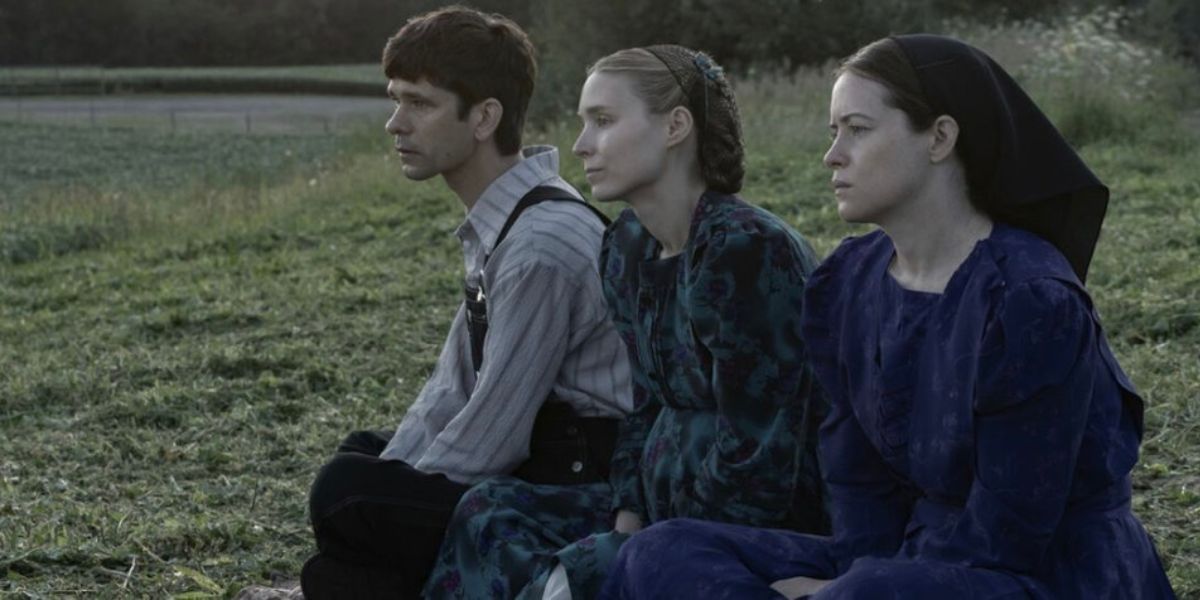Based on the novel by Miriam Toews, Sarah Polley’s breathtaking film Women Talking centers on a group of Mennonite women who must decide what to do after the shocking realization that the men of their colony have been taking advantage of them for years. They can choose to act like nothing happened, stay and fight back, or flee everything they’ve ever known to start fresh somewhere else. Much of the film takes place in a hayloft, where there is a range of emotions and opinions on display – from hurt to anger to compassion.
Before the film’s release in select theaters on December 23rd (expanding wide on January 6th and available everywhere on January 27th), I got a chance to speak with Michelle McLeod, Liv McNeil, and Kate Hallett, who play Mejal, Nietje, and Autje, respectively. The three rising talents spoke about what it was like to work with Sarah Polley, the film’s portrayal of mental health, and which other characters in the film they’d like to play.
TAYLOR GATES: First of all, congratulations. You all are so amazing in this movie, and it was such a joy to watch all of you. Kate, I want to start with you because you sort of start the movie off because your voice is the voiceover in the narration that sort of threads throughout the movie. I know this wasn’t originally the case – it was originally going to be Ben Whishaw. I was wondering what it was like being asked to do that and having that responsibility to be the thing that threads the movie.
KATE HALLETT: I think it’s honestly one of the best…I want to say compliment, but I don’t think that’s the word I want to use. It’s like the biggest…
LIV McNEIL: Honor?
HALLETT: Yeah, it’s like the biggest honor in the world to be asked to do that, especially by the incredible [director] Sarah Polley. Out of everyone in this cast, I was kind of just flabbergasted that she asked me, and it just felt so incredibly special. I wanted to do her work – she put so much work into writing Autje’s voiceover lines because they were different than what Ben was originally going to say. She put so, so much effort and love into those lines, and I wanted to put as much work as I could into doing them justice.
Well, you definitely did. It was very, very incredible. Speaking of Sarah Polley – Liv, I know you connected with her after directing a short film, which is so amazing. I want to know what you learned as a filmmaker by being directed by someone like her.
McNEIL: I learned so much. It was a phenomenal experience. More than I will get from any university or film school. Just being completely immersed in the work and her technique. And I would just watch her 24/7, just at any point, just watch her talk to people, watch how she conducts the room, how she works the room, how she makes things happen. I would often hang out after “cut” and just watch them set up the next shot. I would go and talk to the DP and talk to Sarah and be like, “What are we doing next? How are we going to do this? If this person is talking to this person across the room and it’s like a circle formation, how are we going to this point of axis or action axis-wise?” I feel like I took so much away from it and put a lot of that learning into my own work now because I’m still making films, and I’m still a film student.
Michelle, I feel like your character sort of serves as a bridge in a way between the adults and the kids in that in-between space between adulthood and adolescence. Is that kind of how you saw it and approached it as well?
MICHELLE McLEOD: It’s funny because it kind of developed into that way. You’re right, it’s a great gap in between because I feel like she was still in her juvenile state, but also, she’s on the cusp of becoming the matriarch of her own family and using the experience. She’s watching her mom, and she’s watching her sister, and she’s seeing her nieces, and she’s seeing everything. And she’s trying to make a decision of how she’s going to tackle that and how she’s going to step in – what shoes she’s going to step into – but it’s also very daunting because there’s such change happening now. She’s stuck between the older world where she’s just now getting “the freedom” to be a woman, and that freedom is now developing into something that’s bigger than herself, and it’s breaking all of what she had known before, and she now has to – just like everyone else – define who she’s going to be afterward. So it’s a bridge between generations, but it’s also a journey for her to find herself amongst these women because we’re all going to set up somewhere else and find our place within it, and I think she’s going to go to her new beginning a lot stronger.
Yeah, 100%. Something else I really loved about your character was that we sort of got to touch on mental health in a way and how trauma can really manifest itself into physical responses. Was that something that felt important for you to portray as well?
McLEOD: Yeah, 100%. I think that mental health needs to be talked about so much more and people need to understand that it is something that happens to people – it’s all part of being an emotional being. The more we talk about it, the more understanding we can have, and the more validated you can feel experiencing these things. I think anxiety is a secret agent – it pops in in so many different ways in so many different forms from so many different triggers, and the more we can understand how to care for ourselves and our anxiety in order to process trauma, the more we can start having those conversations that make it more realized that it is common and you’re not alone.
Very well said. I really love that. Something else I love about this movie is every character has such depth and gets their moment to shine. I’m curious: if you could play any other character, who else would you want to sink your teeth into besides your own character?
McLEOD: I want Salome [Claire Foy] so bad.
McNEIL: I was going to say Ona [Rooney Mara].
HALLETT: I want to play Mariche [Jessie Buckley].
McNEIL: Yeah, yeah, yeah, yeah, yeah – I see you for Mariche. I want to say Ona so bad.
McLEOD: I love Claire Foy when she was, like, angry and kicking a bucket. Every time, yeah, when she did that.
McNEIL: That looked fun.
HALLETT: Mhm.
McLEOD: As an actor, I have to contain myself, but internally as Michelle, I was like, “Get it.” Like, “Kick that bucket.” So yeah, I feel that.
McNEIL: Ona’s not angry.
HALLETT: No Ona’s not.
That’s amazing. We really have a range of emotions. One of the emotions I feel is kind of unexpected is that there is a lot of comedy throughout and these moments of really effective humor. And a lot of them come from you all’s characters. Can you talk a little bit about playing some of the lighter moments juxtaposed next to these very dark, serious issues?
HALLETT: I mean, I think having lighter moments is really important in films like this because it helps to highlight and make the darker moments way more emotional and just way more impactful, and I think – especially with film – the Mennonite women that Sarah met with made it really clear that it was important to have humor and laughter in the room because they were saying that when Mennonite women gather together without the men there’s a lot of laughter, and there’s a lot of touching and physical contact. Sarah really, really tried to highlight that, I think, and she did a wonderful job with it.
Women Talking opens in select theaters on December 23rd, expands wide on January 6th, and is available everywhere on January 27th.




